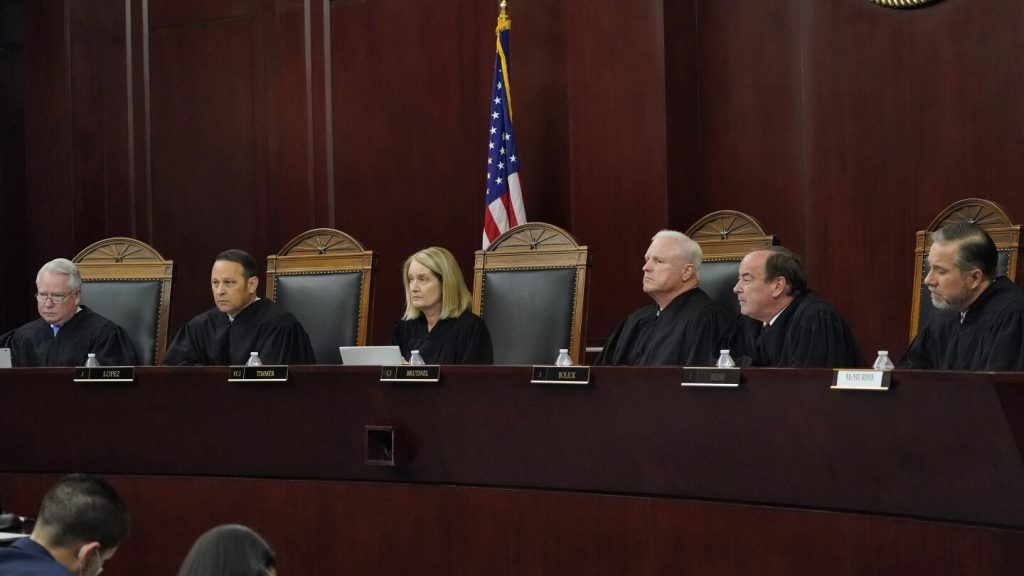Arizona’s Supreme Court recently ruled to enforce a long-dormant law criminalizing all abortions except when the mother’s life is at stake. This decision allows for the prosecution of doctors performing abortions, with a potential prison sentence of two to five years. The 1864 law provides no exceptions for rape or incest but allows for the procedure if the mother’s life is in danger. The enforcement of this law is set to take effect in 14 days, opening the door for legal challenges and debates on reproductive rights in the state.
The ruling comes after a 2022 decision by the state Court of Appeals, which stated that doctors could not be charged for performing abortions within the first 15 weeks of pregnancy. State Senator Arizona Eva Burch, who recently shared her own personal experience with abortion, criticized Republican lawmakers who supported the ban. She emphasized the importance of protecting reproductive rights and highlighted the upcoming ballot measure that will allow Arizonans to vote on the issue this fall. Burch’s statement reflects the ongoing debate surrounding abortion access and the need for continued advocacy for women’s rights.
Currently, 14 states have implemented bans on abortions at all stages of pregnancy, with limited exceptions. Some states even ban the procedure once cardiac activity can be detected, which typically occurs around six weeks into pregnancy. Legal challenges have been raised against these bans, with courts blocking the enforcement of certain restrictions in states like Utah and Wyoming. The national landscape on abortion rights is evolving, with states taking varying approaches based on their political leanings and judicial interpretations.
Arizona’s Supreme Court decision to enforce the 1864 law follows the U.S. Supreme Court’s overturning of Roe v. Wade in June 2022. Attorney General Mark Brnovich, a Republican, played a key role in persuading a state judge to lift the block on enforcing the law. However, his Democratic successor, Attorney General Kris Mayes, had urged the high court to maintain the block, highlighting the partisan divide on abortion issues in the state. With the end of the nationwide right to abortion, states have been enacting new bans or restrictions based on their political leadership.
Despite the ruling, there are ongoing efforts to repeal the 1864 law through legislative measures. A proposal before the Arizona Legislature has yet to receive a committee hearing this year, raising questions about the future of reproductive rights in the state. Former Governor Doug Ducey, who signed a law restricting abortion after 15 weeks, expressed disappointment in the court’s decision. President Joe Biden and Vice President Kamala Harris have also voiced their support for a woman’s right to choose and called for congressional action to restore the protections of Roe v. Wade. The debate over abortion rights continues to be a contentious issue at both the state and federal levels, with implications for women’s health and autonomy.


